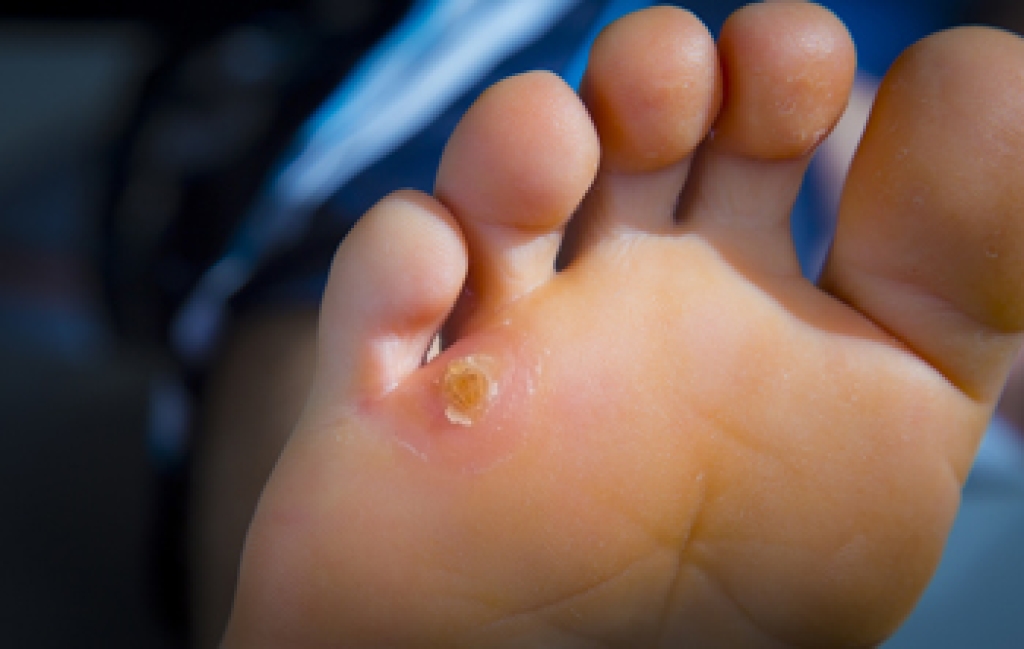
Corns, or clavus, develop when skin is subjected to prolonged pressure or friction, often from wearing ill-fitting shoes. These hardened areas primarily appear on toes and the soles of the feet. Initially, a callus forms, which can evolve into a painful corn if the stress persists. Corns on the feet are easily identifiable by their raised, yellowish-beige appearance and their often painful central core. Moist areas, such as between toes, may produce softer, whitish corns. Contributing factors include wearing tight shoes, having foot deformities, joint diseases, or dry skin, which make skin more vulnerable to friction. Those with impaired nerve function might not detect early stages, leading to worsened conditions. Without intervention, corns can thicken and cause deeper tissue pain and inflammation. Treatment focuses on reducing the source of pressure. This can include wearing well-fitted shoes, using protective corn pads, and soaking and gently filing the corn. Individuals with higher injury risks, such as those with diabetes, should seek professional help instead of self-treating. If you have developed a problematic corn on your foot, it is suggested that you schedule an appointment with a chiropodist for treatment options.
Corns are small bumps or dry, hardened skin that can arise on the feet, usually in response to friction. Corns can be asymptomatic, or they can be uncomfortable or painful. If you have corns that are bothering you, please consult with Emily Yu, B.Sc from Uptown Foot Care Clinic. Our specialist can help you maintain the health of your lower limbs and your mobility.
There are three types of corns:
- Hard corns
- Often occur on the tops of toes
- Feature a hard core surrounded by dry, irritated skin
- Can be painful
- Soft corns
- Often occur in between the toes
- Soft due to constant exposure to sweat
- Can be painful
- Seed corns
- Tiny
- Often occur on the soles of the feet
- Usually asymptomatic
Corns can be prevented by wearing shoes that fit properly. They are typically benign and don’t require medical treatment. However, if your corns are causing you pain or discomfort, don’t hesitate to reach out to a chiropodist near you for treatment options. If you have any questions, please feel free to contact our office located in . We offer the newest diagnostic and treatment technologies for all your foot care needs.
